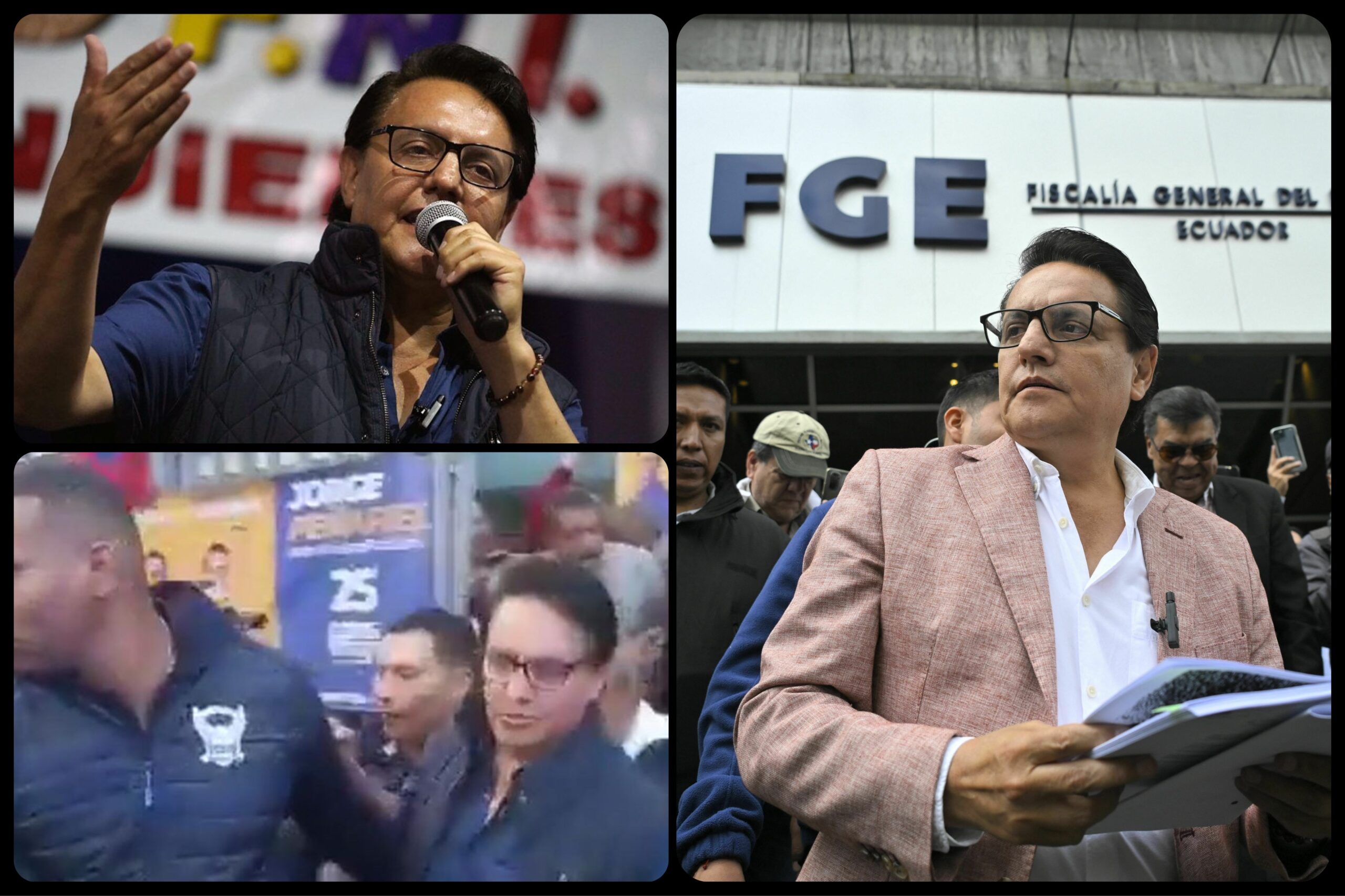Villavicencio, ass*ssinated after leaving a campaign event, he had a brief political career but a rich history in investigative journalism.
Fernando Villavicencio, the Ecuadorian presidential candidate ass*ssinated after departing a campaign event, wasn’t the leading contender in the upcoming elections. Nevertheless, he garnered backing for his strong stance against crime and corruption.
His campaign motto, “Es tiempo de valientes” – “It’s time for the brave,” reflected his unwavering courage, admired even by those who held differing opinions. His history as a tenacious investigative journalist had earned him ardent supporters but also formidable adversaries.
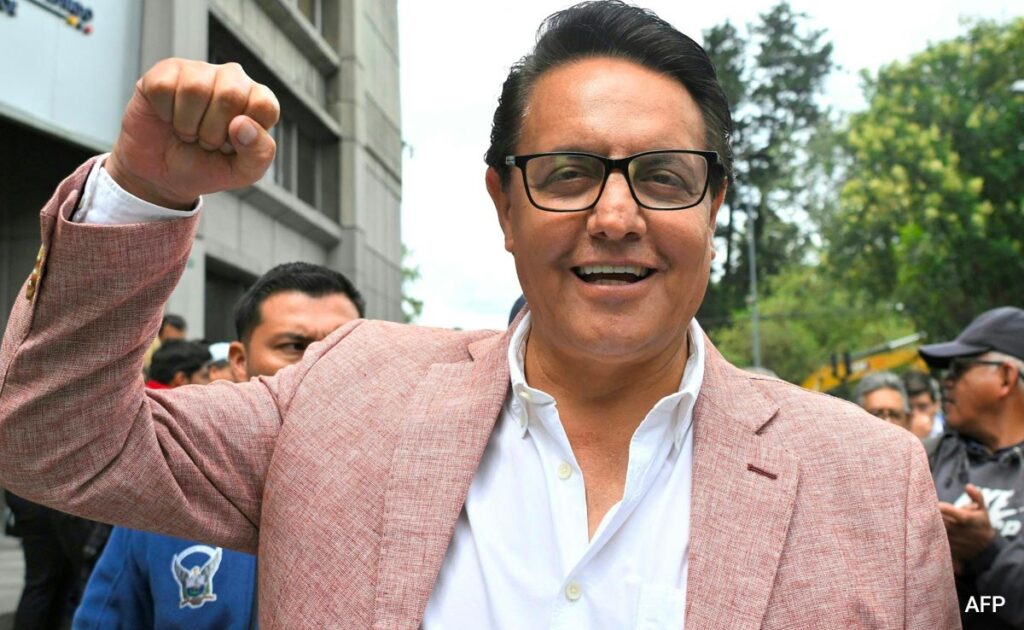
At the age of 59, Villavicencio’s political career was relatively short-lived, but his public presence was marked by a substantial history of investigative journalism and his unyielding dedication as a courageous exposé of corruption.
His notable prominence in Ecuador stemmed from his outspoken critique of former President Rafael Correa, a leftist populist with authoritarian tendencies who led the country from 2007 to 2017. Villavicencio’s fearless stance against Correa’s administration made him a well-known figure in Ecuadorian politics and society.
In Belgium, his wife’s home country, Villavicencio had already gone into hiding. He faced an 18-month prison sentence for defamation against Correa. In 2014, the journalist sought refuge in the Indigenous territory of Sarayaku in the Ecuadorian Amazon, persisting in his allegations against senior Correa government officials, including the former president himself.
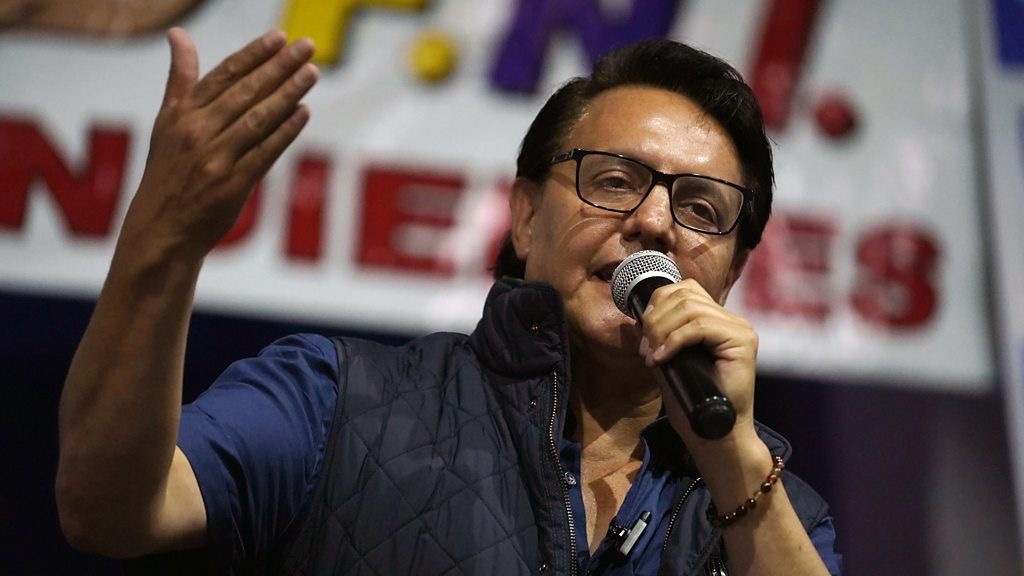
Villavicencio chronicled his fugitive life in “La Derrota del Jabalí” (The Defeat of the Boar) and delved into corruption within the oil industry in “El Feriado Petrolero” (The Oil Holiday).
In 2016, he faced renewed imprisonment orders for utilizing hacked emails during an investigation into suspected corruption at an oil company. Seeking refuge in Lima, he was granted asylum, which extended until 2017. It was only after Correa’s successor, Lenín Moreno, permitted his return to Ecuador.
In the subsequent year, Villavicencio collaborated with journalists from The Guardian to expose the Ecuadorian government’s extensive surveillance operation, costing millions, aimed at monitoring visitors to Julian Assange during the WikiLeaks founder’s seven-year asylum in the Ecuadorian embassy in London.
His deep-seated resentment toward Correa, whom he held responsible for persecuting his family, led him to transition into a role as a political activist, particularly against Correa’s political associates following the former president’s departure from office.
Villavicencio, hailing from a childhood marked by poverty in the Andean region of Chimborazo, identified himself as a leftist. As the eldest of five siblings, he vividly remembered the days of toiling in the daylight and studying into the night when his family relocated to Quito at the age of 13.
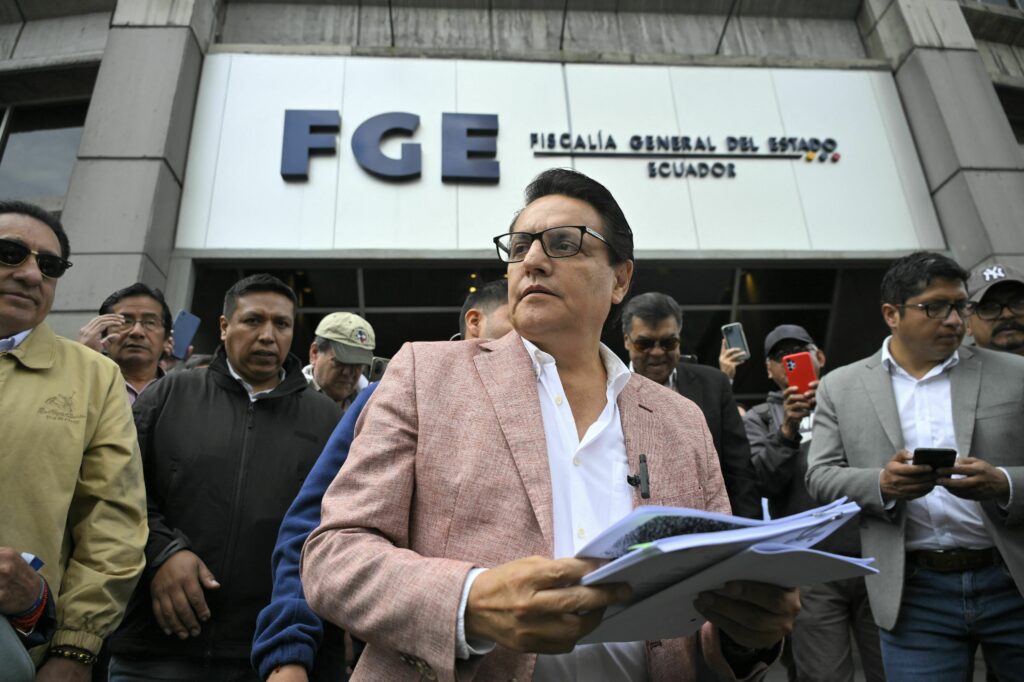
At the young age of 18, he emerged as a union leader during his university years, and in 1995, he entered the realm of politics through the leftist Indigenous movement, Pachakutik. This movement ardently advocated for Ecuador’s recognition as a plurinational state.
As time passed, his political allegiances underwent a shift towards the right. In 2020, he declared his candidacy for the national assembly and secured a seat as a legislator. From 2021 onward, he became a member of an oversight committee, putting him in opposition to the dominant party led by his rival, Correa.
In the end, his vote played a pivotal role in preventing the removal of Guillermo Lasso. Lasso had invoked a constitutional “mutual death” provision in May, dissolving Ecuador’s 137-member national assembly and prompting snap elections.
Inherent in his nature a politician, yet professionally a journalist, Villavicencio embodied both a provocateur and a skilled communicator. He foresaw that his outspokenness might carry dire consequences. Despite receiving death threats early in his campaign, he boldly declared his intention to persist in public appearances.
In a resolute tweet, he affirmed, “To stay silent and conceal oneself during a period when criminals are taking lives, both of citizens and officials, is an act of cowardice and collusion. I stand by my choice to engage in the daily battle until these criminal networks are vanquished.”
On August 9, 2023, at 18:20 (ET), tragedy struck as Villavicencio was sh*t in the head while entering a vehicle shortly after concluding a campaign rally at Colegio Anderson in the northern part of Quito. In a brazen attack, the assailants also attempted to detonate a grenade, which fortunately failed to explode. Villavicencio was swiftly transported to a nearby clinic, where his passing was tragically confirmed. At the time of his ass*ssination, he was 59 years old, and the attack left nine others injured, including two police officers. Notably, Villavicencio had security protection during this fateful incident. Additionally, one suspect in the assassination met their demise during a shootout.
This shocking event transpired less than two weeks before the scheduled general election. Just one day prior to his untimely death, Villavicencio had reported an undisclosed matter to the Justice Ministry, details of which remain undisclosed. It’s worth mentioning that Ecuador was grappling with escalating gang v*olence, as noted by The Washington Post. Villavicencio had been the target of multiple death threats throughout his political journey, including a menacing message from the Sinaloa Cartel during his presidential campaign, with the most recent threat occurring just a week before the fatal shooting.
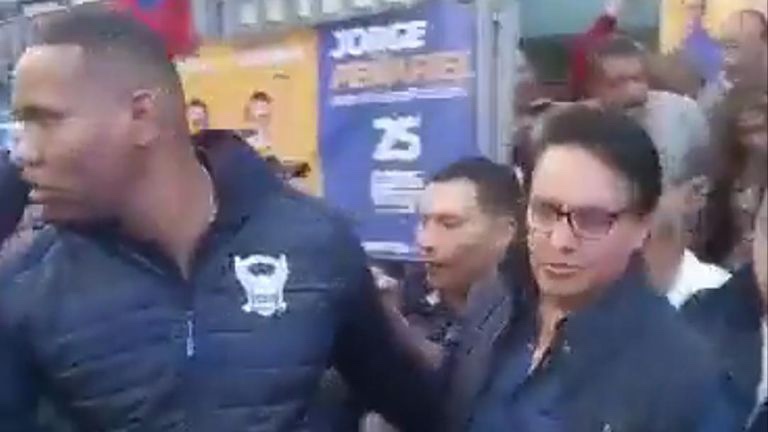
President Guillermo Lasso somberly confirmed Villavicencio’s untimely demise and vowed that the “crime will not go unpunished.” Following the shocking attack, Lasso promptly convened a security meeting with officials at Palacio de Carondelet in Quito.
Presidential candidate Jan Topić seized upon Villavicencio’s tragic ass*ssination as a call to action against the escalating v*olence in the country. Likewise, presidential candidates Yaku Pérez, Xavier Hervas, Otto Sonnenholzner, and Luisa González extended their heartfelt condolences and unequivocally condemned the heinous attack.
Former President Correa weighed in on the grim event, characterizing Ecuador as a “failed state” and cautioning that those who sought to perpetuate hatred through Villavicencio’s death would only contribute to further destruction.
Meanwhile, the electoral observation mission of the Organization of American States (OAS), scheduled to arrive in Ecuador the following day, issued a statement condemning the m*rder, expressing solidarity with the grieving Ecuadorian people, and urging authorities to conduct a thorough and comprehensive investigation.
Disturbing videos capturing the attack began circulating on social media shortly after Villavicencio’s passing was confirmed. These videos depicted Villavicencio entering a vehicle amid a hail of g*nshots, with witnesses in distress. Additionally, Villavicencio’s party reported that armed individuals had targeted their offices in Quito on the same fateful day as the assassination.
